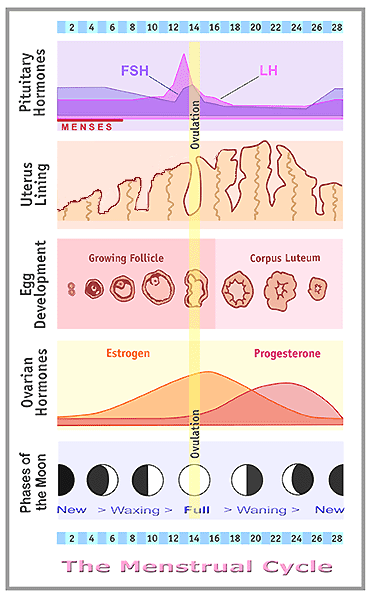The Role of Hormones in the Menstrual Cycle.
FSH is released by the Pituitary Gland and stimulates the development of follicles in ovary
The Follicles release Oestrogen as they develop.
Oestrogen causes thickening of the endometrium layer.
When the level of oestrogen in the blood reaches a "threshold level" LH is released from the Pituitary Gland
Rapid rise in LH levels triggers OVULATION & the formation of a Corpus Luteum
The Corpus Luteum secretes oestrogen and progesterone - which maintains the thick endometrium.
High levels of Progesterone inhibit FSH production and no more follicles can be released.
After 10 days the Corpus Luteum degenerates and the level of progesterone drops.
The inhibition of FSH stops and the Pituitary Gland recommences FSH production.
The endometrium, and some blood is lost from the uterus.
